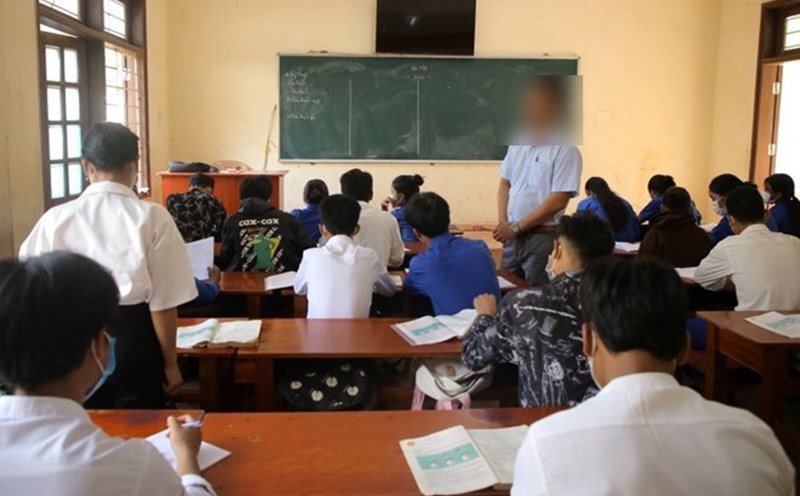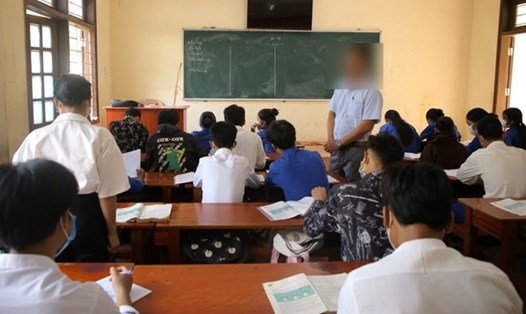Discussing at the meeting hall about the draft Law on Trade Unions (amended), National Assembly Delegate Thach Phuoc Binh (National Assembly Delegation of Tra Vinh Province) said that currently, the tasks of trade unions are increasingly complicated, the workload is increasing but the staff is very limited. This increases the pressure on the team of trade union officials, especially at the grassroots level.
“Compared to other socio-political organizations, the current trade union staffing is only one-third. For example, by March 2024, the total staffing of socio-political organizations such as the Women's Union, Youth Union, Farmers' Association, and Fatherland Front will be about 62,000 people, while the total staffing of local trade unions will be about 5,119 people. This number clearly does not meet practical requirements, especially when the number of grassroots trade unions and union members increases,” said the National Assembly deputy.
In addition, according to the National Assembly member, the current management of union staff is not consistent among localities. Unions pay salaries to staff throughout the system, but the staff is managed by local Party committees, leading to uneven allocation of personnel. For example, in two localities with similar social conditions, the number of union staff is different due to different Party committee decisions.
In addition, grassroots union officials are mainly those who work in enterprises that are not on the payroll of civil servants and often work part-time. This makes it difficult for them, especially in protecting the rights of workers when they themselves are workers and depend on business owners.
The National Assembly member proposed that enterprises with 200 or more employees be allowed to appoint full-time union officials to ensure that they operate relatively independently from the business owner; at the same time, creating conditions for full-time union officials in enterprises with many workers who are not on the payroll of civil servants but are recruited under labor contracts. According to the National Assembly member, this will help unions have a stronger voice in representing and protecting the rights of workers.
Citing data from National Assembly member Thach Phuoc Binh on the staffing of the Trade Union compared to other socio-political organizations, National Assembly member Nguyen Hoang Bao Tran (Binh Duong province delegation) pointed out the local reality: Currently, Binh Duong is a locality ranked 53rd in the country in terms of the lowest number of staffing. Regarding the trade union organization alone, the province only has 98 staffing levels to manage more than 4,000 grassroots trade unions and over 750,000 union members.
According to the female National Assembly member, with the current allocation of union officials, all levels do not have enough staff to arrange them into the required positions and jobs. There are places where there are only 3 officials to carry out the tasks and the Chairman is the account holder and the Vice Chairman is also the Chairman of the Inspection Committee, also the accountant and treasurer. This is fundamentally against the regulations and can easily lead to violations.
"Should we create a more specific mechanism for provinces and cities to develop, especially in terms of resources, in which it is necessary to study the reasonable rate of budget allocation to the Central Government and the number of staff to create the best conditions for development motivation for localities?" - National Assembly Deputy Bao Tran said.
Regarding the trade union payroll, receiving and explaining the opinions of the National Assembly Deputies, Mr. Nguyen Dinh Khang - Member of the Party Central Committee, President of the Vietnam General Confederation of Labor - said that, in the spirit of Resolution No. 02 dated June 12, 2021 of the Politburo, which stipulates "studying and proposing a reasonable mechanism for assigning payroll to trade unions, ensuring to meet requirements, tasks and actual situations", the General Confederation will continue to report to competent authorities with special attention to the trade union staff to ensure sufficient quantity, improve quality, create conditions for trade union organizations to operate more and more effectively, especially in the context of competition in trade union activities.











